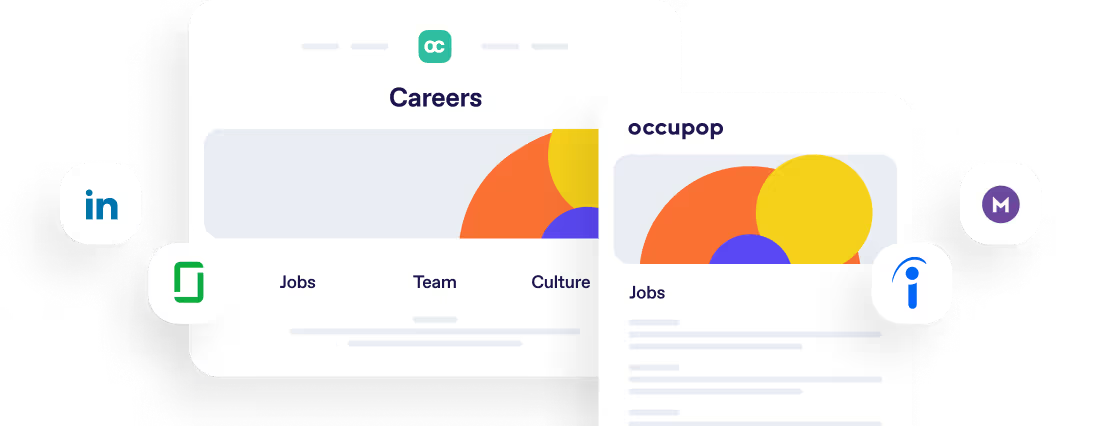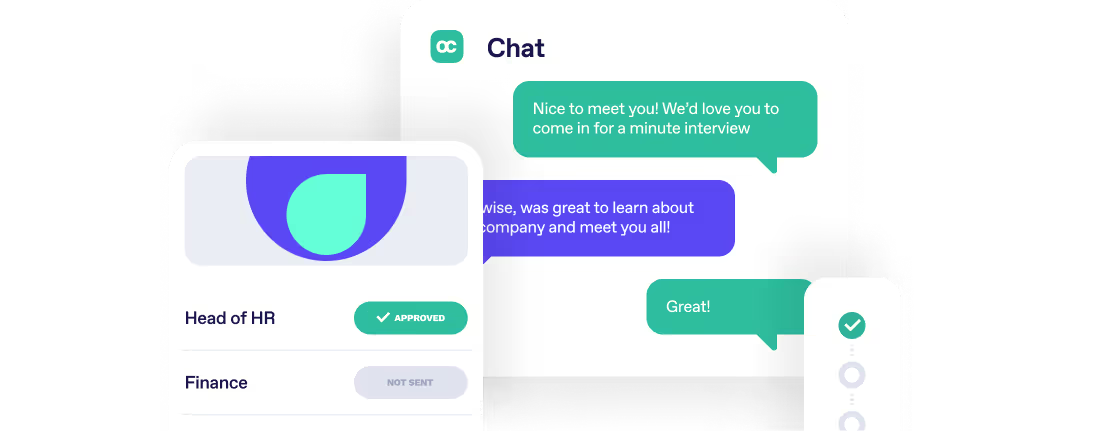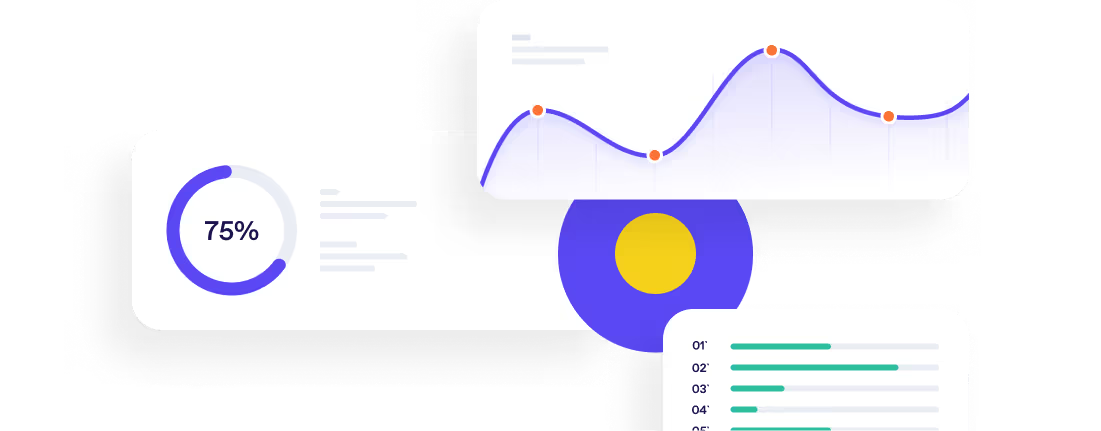6 Trends That Will Shape HR in 2022



But most people would agree that 2020 brought unprecedented events and changes that continue 2 years later. In 2020, most businesses had no warning of the massive workforce changes to come but they still had no choice but to adapt quickly. Everyone also thought that things would return to “normal.”
In 2021, we learned that this is the new normal. Forced change means there’s no time to plan, budgets are strained, and results are unpredictable.
On the other hand, the good news is that unprecedented events force unprecedented innovation. The following six trends were overdue and may be challenging to implement. But the results they produce have the power to truly reinvent how HR thrives in 2022.
HR Trend #1 Hi-touch employee experience takes over
All of the following trends will help to reinvent HR in 2022 and beyond. But none of them will work without a focus on people first. The pandemic illustrated how fragile life can be and caused workers to focus on things that are truly most important – their quality of life.
People are business investments not overhead. Unfortunately, many businesses didn’t reach the logical conclusion that when candidates become scarce, employers need to adapt their mindset. "The Great Resignation" of 2021 significantly changed the dynamic in favor of candidates and employees everywhere. Employers are now realising that attracting and retaining workers requires an investment in their workers’ total well-being vs. work-life balance. Sixty-eight percent of senior HR leaders responded in a survey that worker well-being and mental health was a top priority.
This is also illustrated in the increased focus on so-called “soft” skills which have long been underrated by employers. But they’re finally getting the respect they deserve. From front-line workers to senior leaders, businesses have recognized how critical interpersonal skills are to the collective success of teams and organisations.
It's all about people.

HR Trend #2 Technology to the fore
Managing the virtual mountains of necessary the data associated with all of those people has become a near impossible task without the use of technology. And it’s no longer sufficient to just manage it. HR is called upon to analyse, strategise, predict trends and understand not just how but also why things are trending.
But that can only happen if HR can automate, eliminate, or outsource low value administrative functions with the use of innovative technology.
- Cloud-based – The days of on-site systems have passed. Using a cloud-based system ensures on-demand, anywhere access and no down time (remember server issues?), or loss of data.
- AI (Artificial Intelligence) enhances processes like recruiting, smart forms, candidate engagement, on demand access, chatbots, and other technology. AI is working when people teams aren’t.
- Robotic Process Automation (RPA) provides the much-needed automation of administrative tasks so teams can focus on strategy.
- COVID compliance tracking – Only a global pandemic could have predicted the need to track compliance with restrictions and mandates. Spreadsheets are great but technology is the only secure and reliable way to manage conflicting and frequently changing requirements as well as Protected Health Information (PHI).
- Gamification uses the concept of game-playing to enhance engagement with candidates and employees.
But Hi-tech doesn’t just mean the system used to manage people data. Workers will need to be trained on fast-breaking technology and HR will need to be involved in their learning in any number of ways.
INSERT-CTA
HR Trend #3 Learning that works for the employee
Candidates and employees today choose companies that they want to work for based partly on the opportunity for growth and professional development, especially when it’s mobile and tech-friendly. So, their learning needs to be geared towards their unique needs and learning styles.
- Mobile - Optimised for use on all mobile devices (tablets, cell phones, etc.)
- Easily digestible micro-learning - short bursts of learning which can be followed by time-spaced reminders to use the knowledge or skill just learned to facilitate retention
- On demand - AI provides on-demand feedback, information, and access
- Simulated – real-life scenarios that help learners apply skills
HR Trend #4 Corporations with heart will stand out
Corporate Social Responsibility (CSR) has always been important to employees but, along with quality of their personal life, they are increasingly holding employers responsible for their contribution to (or lack of) corporate social responsibility.
Social activism is on the rise across the globe, in large part thanks to younger workers who demand that their employers take responsibility to actively contribute to societal improvement.
And they’re much more likely to walk away from businesses that don’t.
HR Trend #5 The journey from equal opportunity to equity
Diversity, inclusion, belonging, equity. These are not the buzz words of the day and they’re not just about complying with laws. Getting it right is a business imperative.
They’ve all played a role in including underrepresented populations. But the focus in 2022 and beyond will be on achieving true equity. Equity is about full and active participation and ownership or power on the same level as everyone else.
Equity is not an initiative, program, or policy that HR must draft and manage. Achieving equity for all employees is part of the heartbeat of an organisation, its internal value system, its value proposition.
It’s the right thing to do. But it doesn’t hurt that Forbes reports that the most diverse companies are 43% more likely to experience an increase in profits.
With that in mind, download our simple guide to creating a D&I strategy Guide in your organisation with lots of tips and advice to get started.

Trend #6 Human capital at the core
A focus on human capital brings it back to where it belongs – people. The drastic changes resulting from the pandemic have changed the way employers think about their workforce. Savvy business leaders have seen this trend coming but workers are definitely driving the change.
Viewing workers as human capital and business assets or investments changes the focus of the business. Investing in technology and initiatives that will continuously develop workers and providing an enriching work experience is a competitive advantage.
Trend overload?
Trends sound, well, trendy. But that’s actually a good thing. Trends are indicators of where the future is headed as opposed to fads which are not destined for longevity. The need for change is responsible for some of the greatest innovations which make work more enjoyable.
Watching workforce trends isn’t trendy. It’s the future. And it’s progress.
INSERT-LINE
Final thought
The complexity and scale of HR trends and objectives in 2022 will necessitate organisations to have the right technology partner to keep up with talent expectations and realities. Thats where we come in. Occupop is a beautifully simple recruitment software / ATS System that helps your HR team focus on the work that matters with its intuitive design, features, and integrations which remove cumbersome learning curves, makes it accessible to everyone at work and saves hours of tedious HR admin work. Try it out with a free 14-day trial.
Summary Points
The top HR Trends that will shape HR in 2022
Trend #1 Hi-touch employee experience takes over
Trend #2 Technology to the fore
Trend #3 Learning that works for the employee
Trend #4 Corporations with heart will stand out
Trend #5 The journey from equal opportunity to equity
Trend #6 Human capital at the core
Simple. Beautiful.
Recruitment Software.
HR updates sent straight to your inbox
You might also like...


Manage your entire hiring process simply, from engagement to management, hiring and onboarding







Simple. Beautiful.
Recruitment Software.
Recruitment Software.






